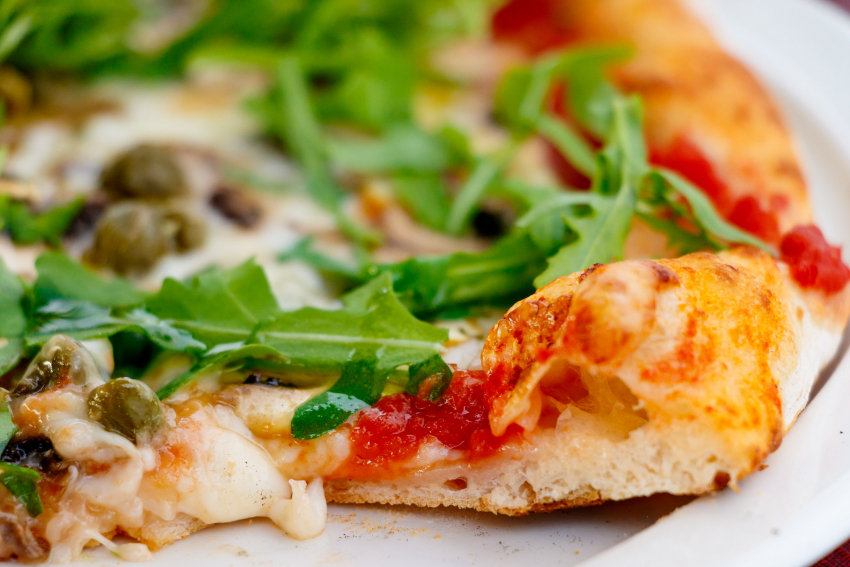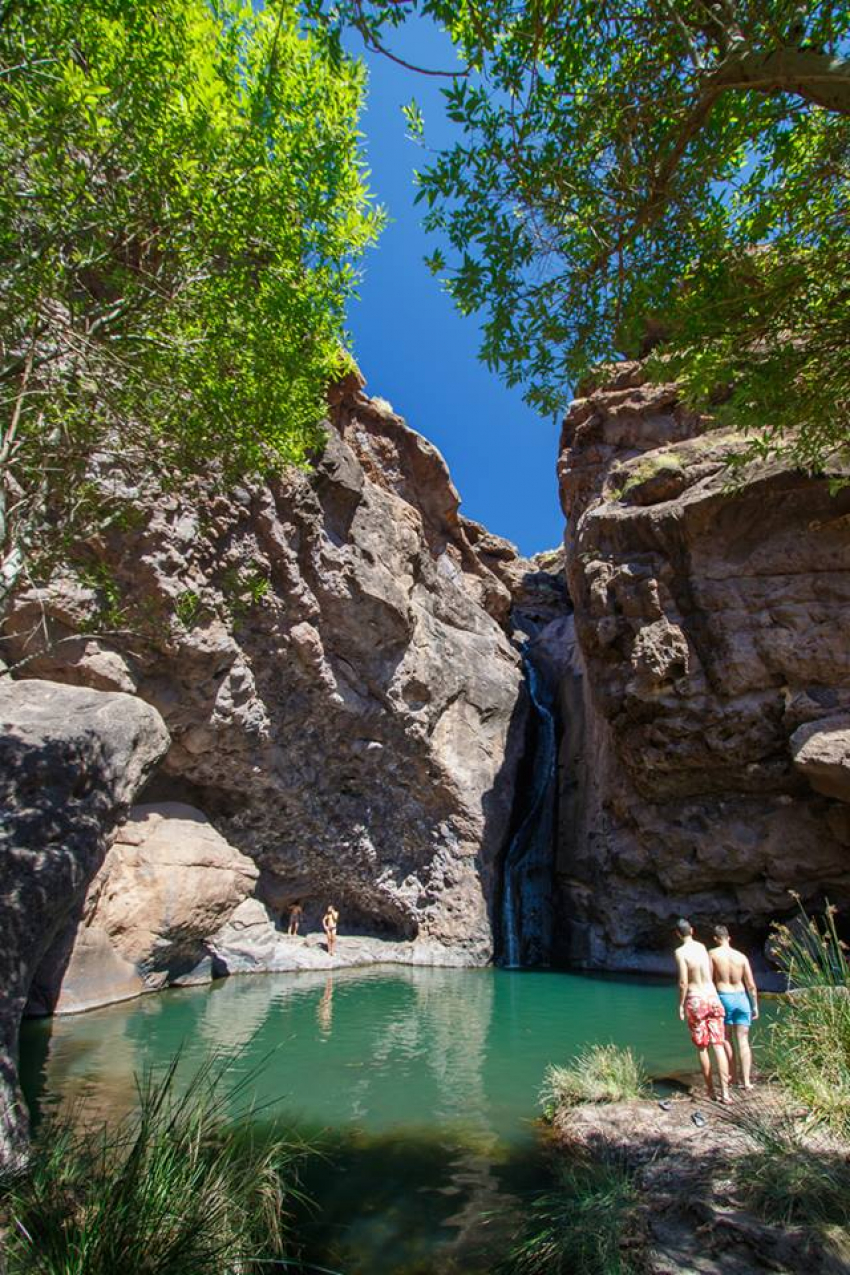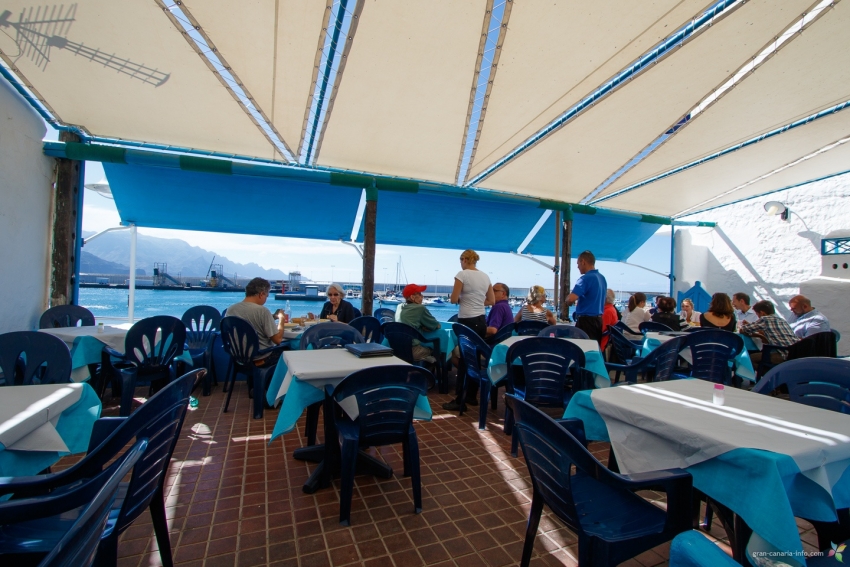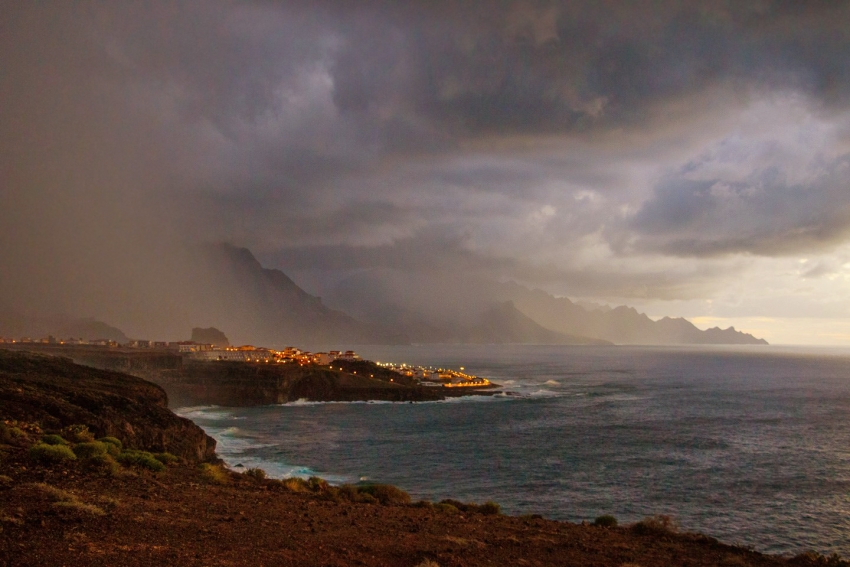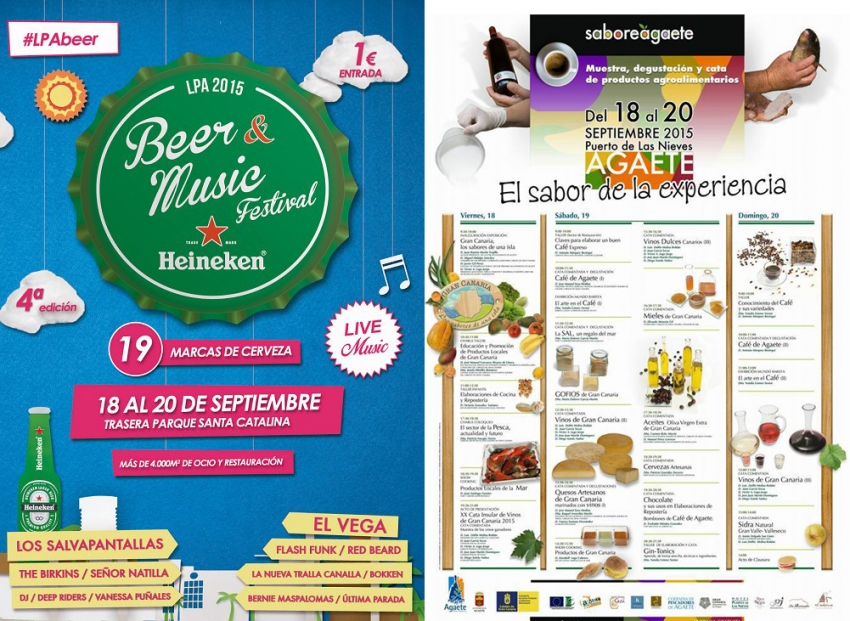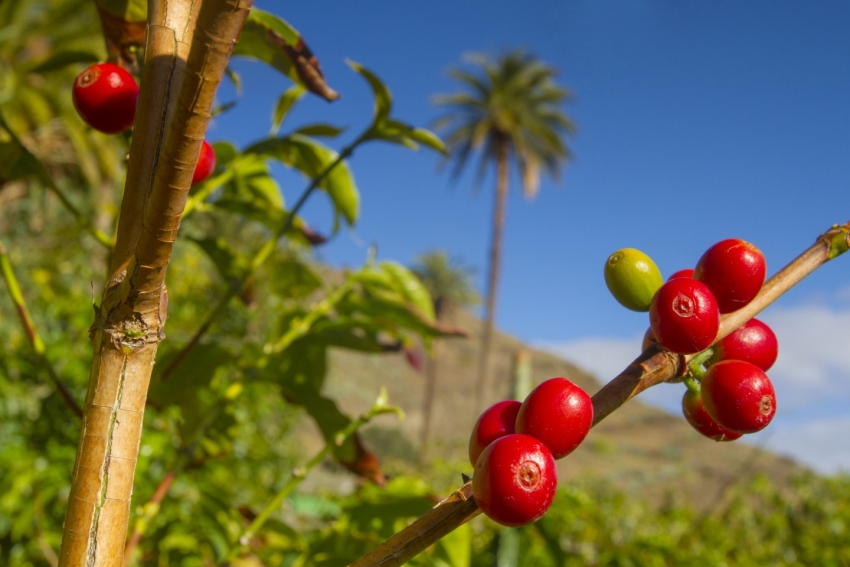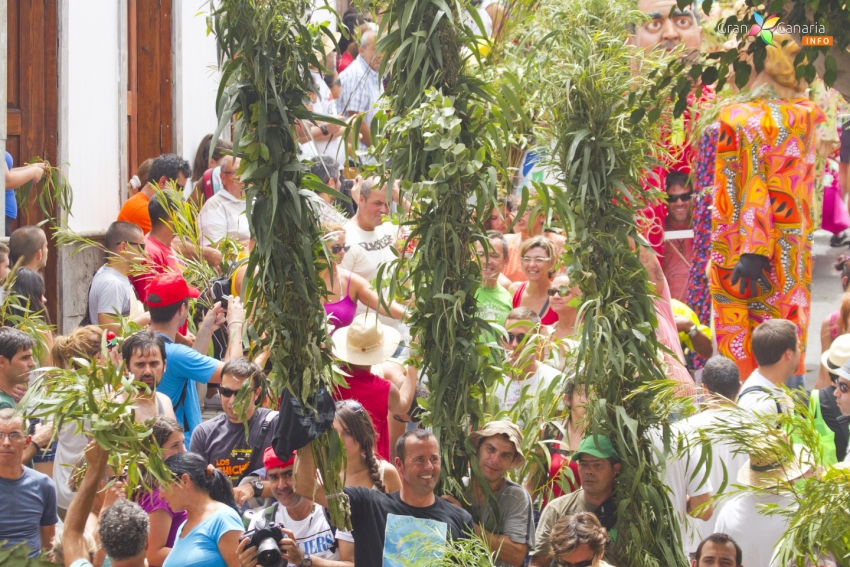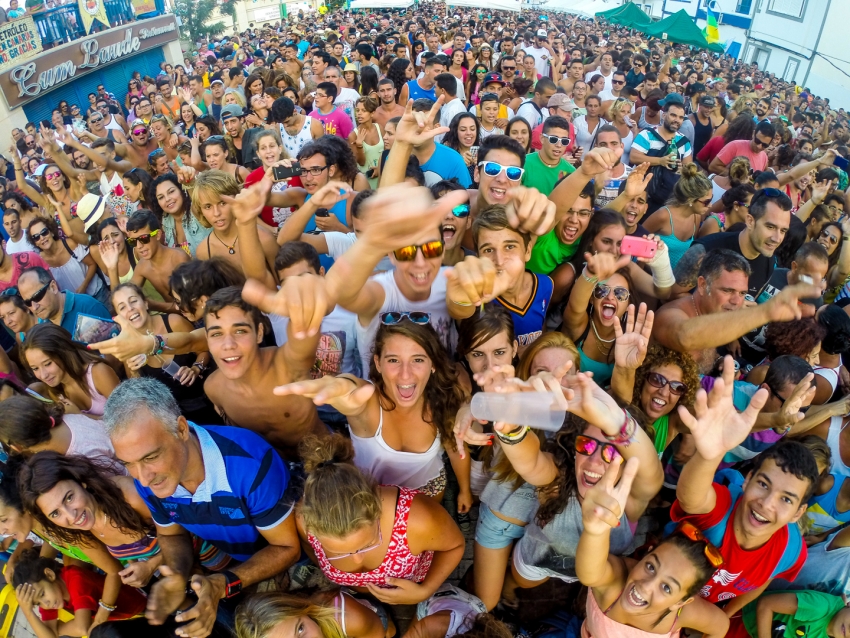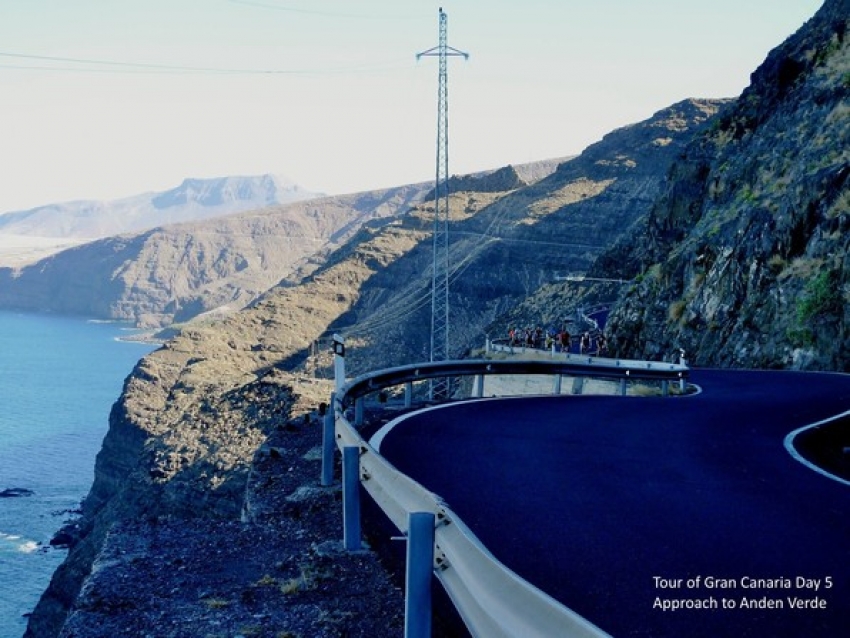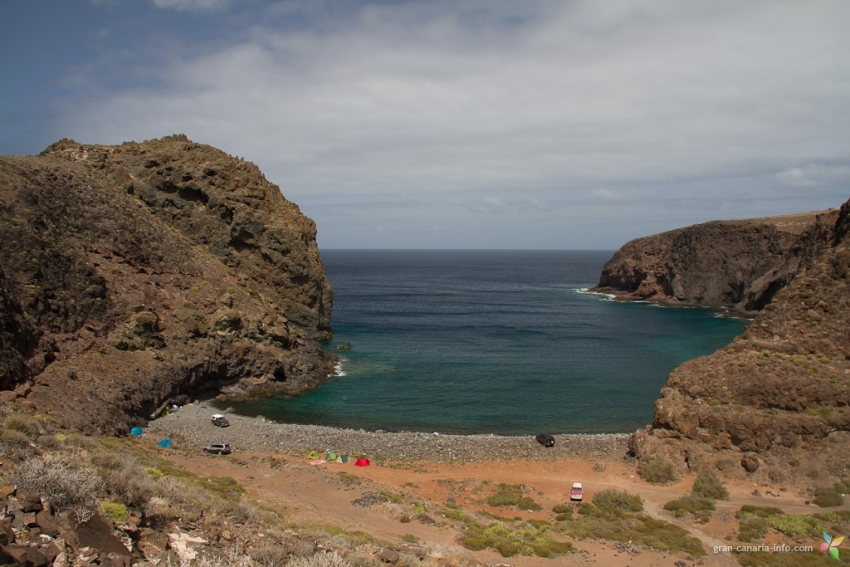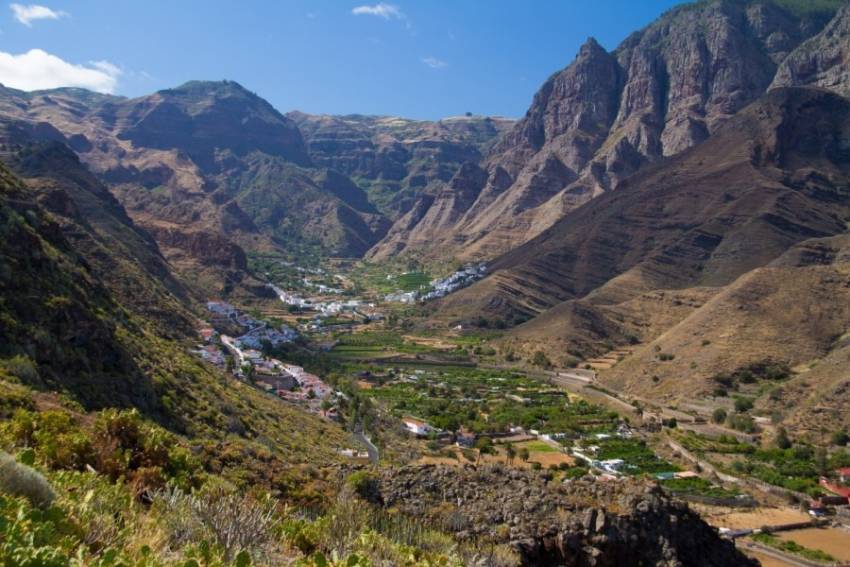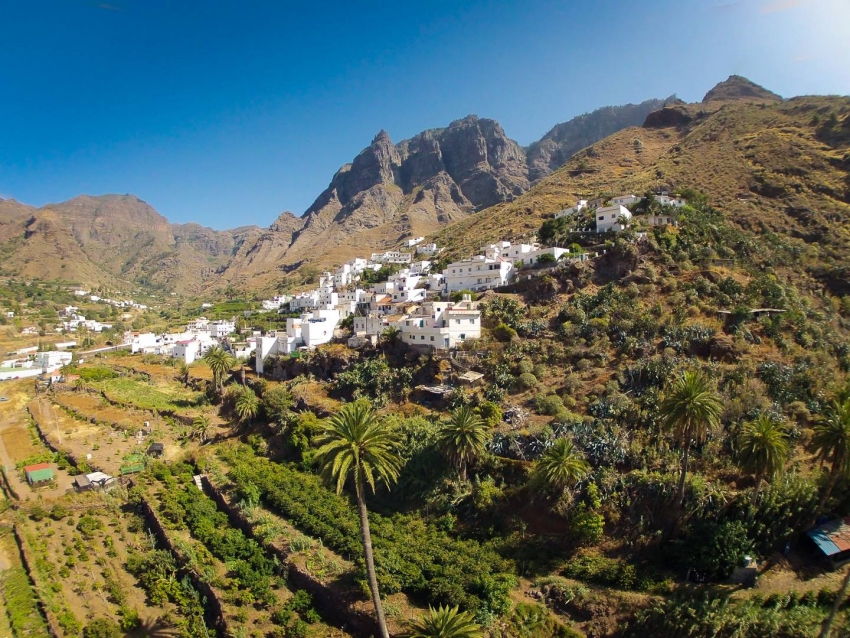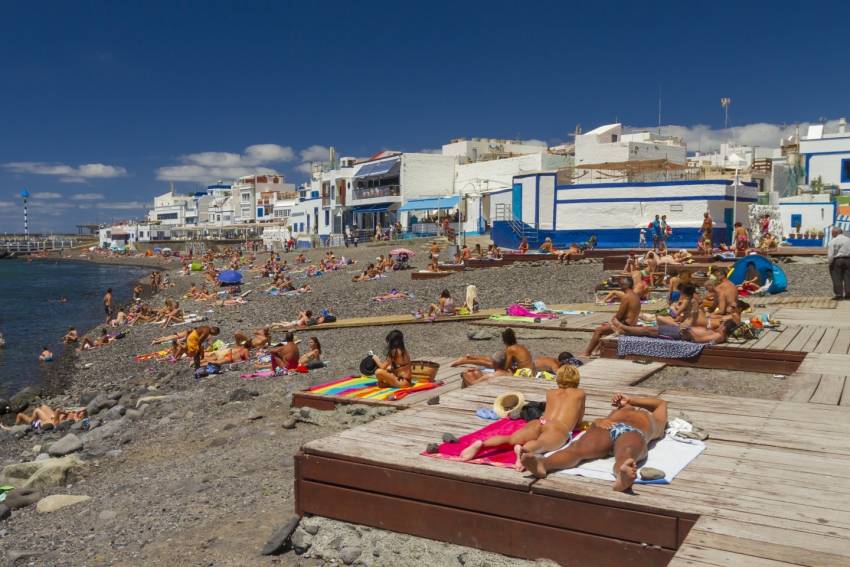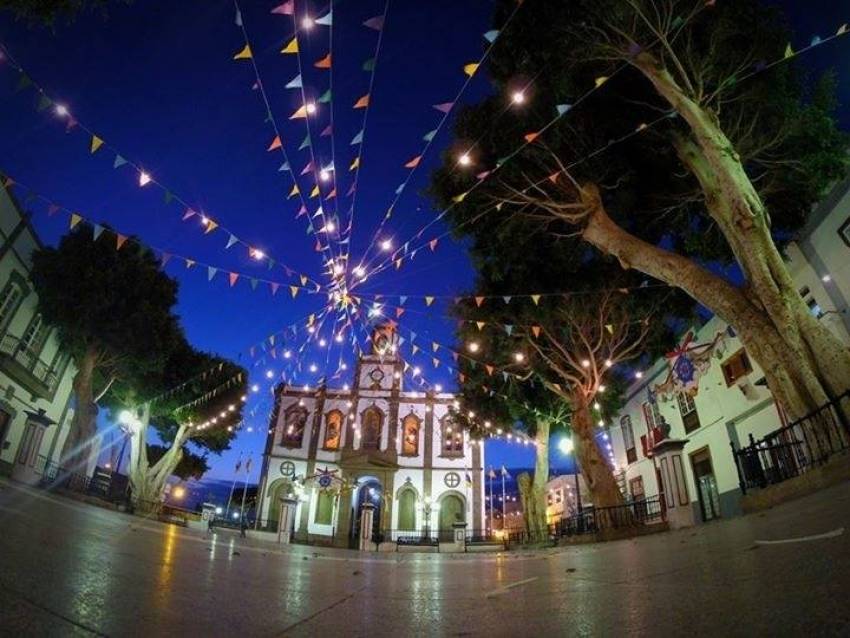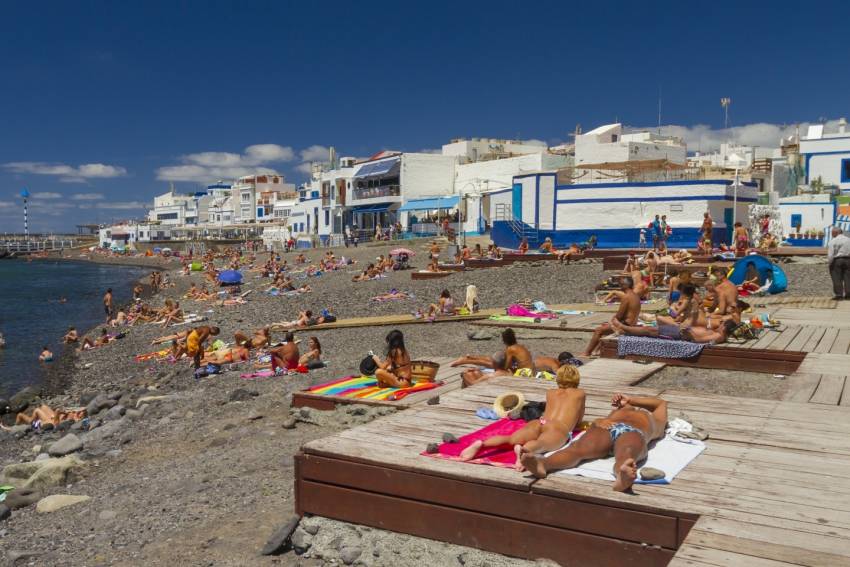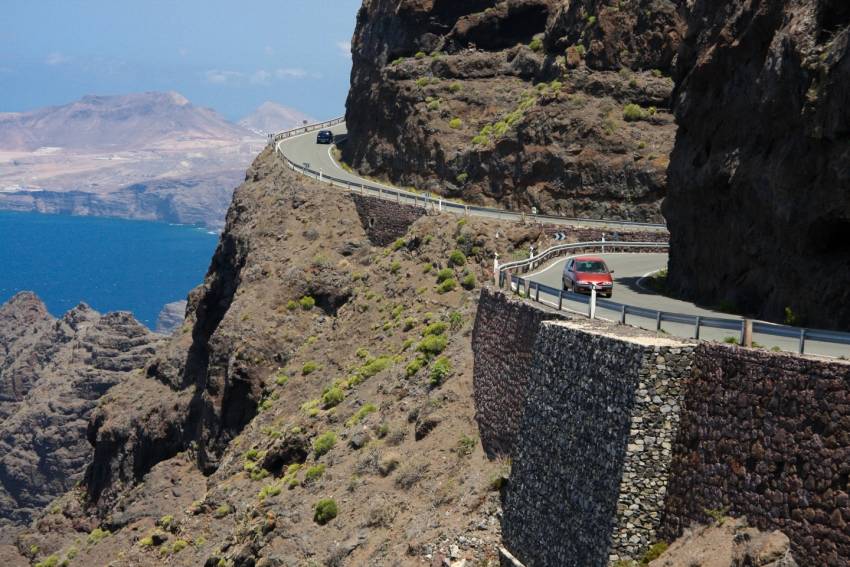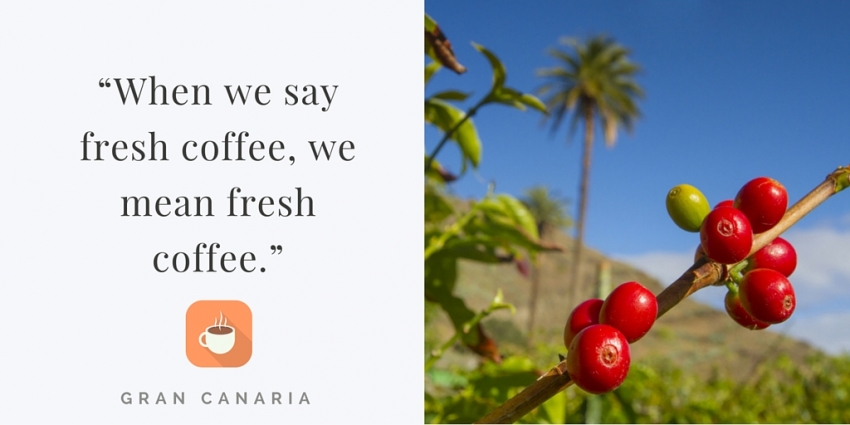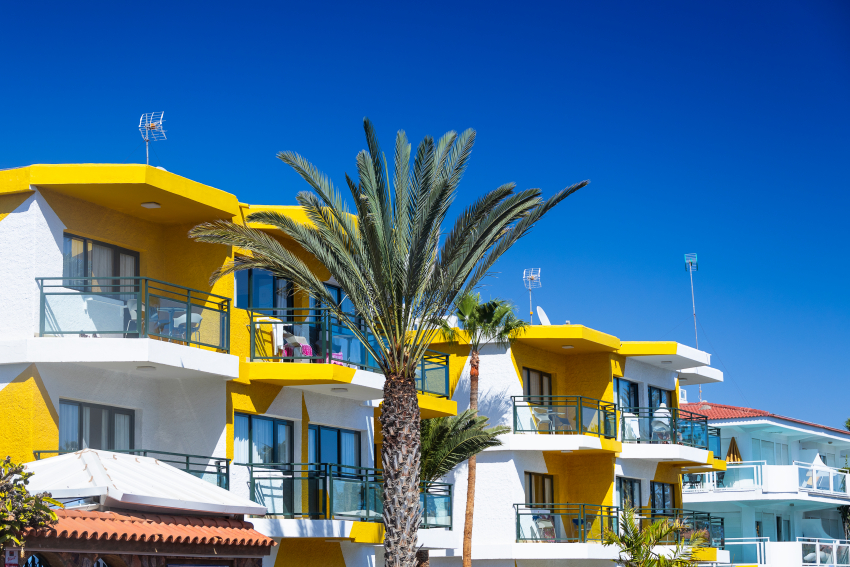Best Pizzeria Of The Whole Island (Says Lex)
Now, I'm vegetarian. So I do like that Italian restaurants exist. As it happens, I do like good pizzas too, and if friends ever go to a good, new pizza place, chances are they will tell me about it. And I've been to the really good pizza places all over Gran Canaria. It is a real coincidence, that the very best pizza place of the whole island happens to be righ in my village: Agaete.
If you get to Puerto de las Nieves (the harbour of Agaete) you'll find lots of restaurants at the sea front. Most do excellent fish if you're into eating dead animals. ;) Look for Pizzeria Dibe, try a pizza there and tell me if you think I'm wrong. I personally prefer the "Celso" pizza, but that is only an option if you like blue cheese and kapers. Any pizza there is really good. The bread bit of the pizza is just amazing!
Anyway, have fun and bon appetit!
Lex
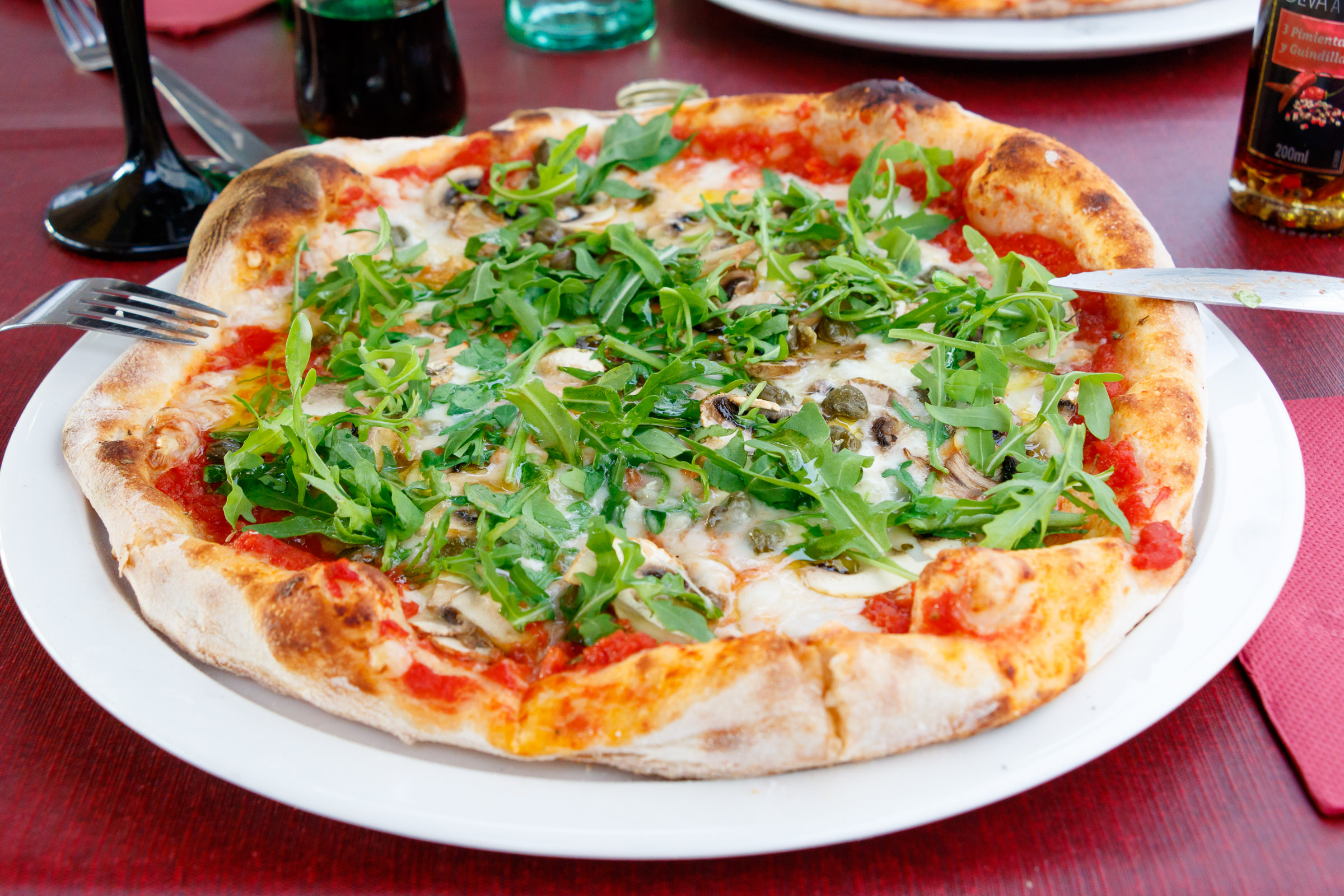
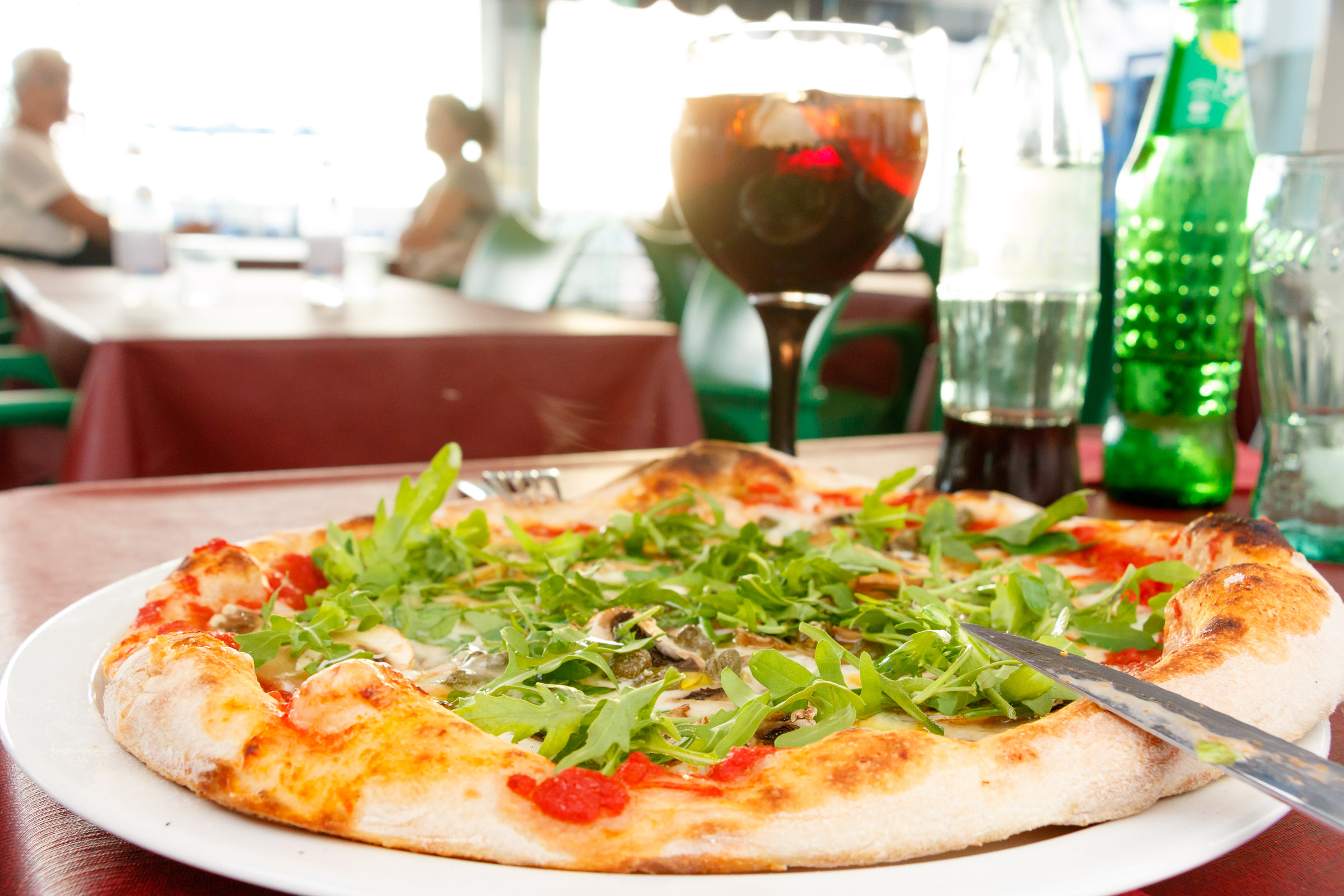
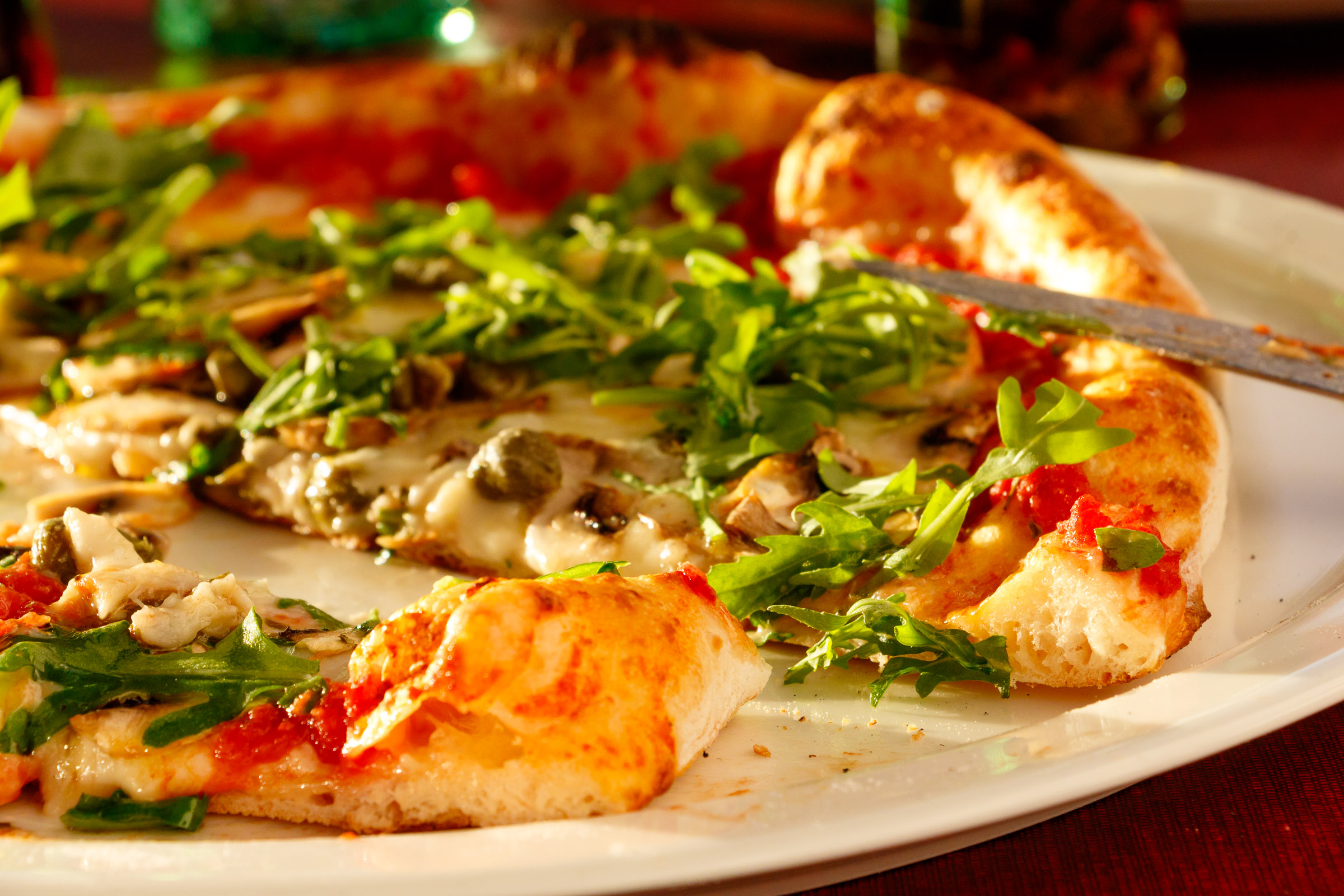
Gran Canaria's Bioagaete Festival Launches Charity Music BIODISCO
Gran Canaria's biggest music event, the annual Bioagaete festival, can't happen this year due to Covid-19.
However, the organisers have decided against taking a well-deserved year off and have instead launched a charity music playlist.
Dubbed the BIODISCO, it features 18 new songs from local famous singers and bands that always play for free at the festival.
To listen to the BIODISCO, please go here and make a small donation to the Bioagaete Foundation. The money raised goes to local families who have been left in need due to the Coronavirus, and to street children in Senegal.
Blue Pool Hike: Walking To Charco Azul in Gran Canaria
This short Gran Canaria hike takes you through a quiet local village, up a beautiful green valley and ends up at Charco Azul; a deep pool with a waterfall that is perfect for swimming:
Tip Of The Day: Food & Art At Las Nasas Restaurant In Puerto de Las Nieves
Las Nasas restaurant on the beachfront at Puerto de las Nieves has a stunning terrace and a huge artwork by the Canary Islands' most famous living artist.
This Is What Gran Canaria Looks Like In The Rain
North Gran Canaria got a soaking on October 20, 2015, thanks to a slow-moving rain storm. These beautiful sunset photos, by Gran Canaria Info photographer Lex Thoonen, capture the moment when the rain started to fall.
Two Great Gran Canaria Food Events This Weekend
Gran Canaria hosts two separate food-and-drink events this weekend. One in Santa Catalina Square in Las Palmas, the other at Puerto de las Nieves in the north-west.
Tip Of The Day: Try Gran Canaria Coffee At Source In Agaete
Gran Canaria's homegrown coffee is the world's most northerly crop and the best place to try it is in Agaete's secret garden.
Branch-Waving Madness Hits Agaete
Bioagaete: Gran Canaria's Epic Seaside Music Festival
As if Agaete doesn't have enough fun at the La Rama fiesta, it also puts on Gran Canaria's coolest music eco-festival.
Cycle from Agaete to Mogán, several Canarian worlds apart
This route is unique in many ways, it's the only route that the webmaster of this web has a chance of doing, since it starts from his house more or less, it's also unique because you need to start in Agaete and have a place or plan as to what to do once you get down south in Mogán, which really is several Canarian worlds away.
Clear Water And Rare Falcons At El Juncal Beach
A tough beach to get to, but El Juncal rewards the intrepid with great swimming, total peace and rare Barbary falcons.
Five Fascinating Facts You Never Knew About The Agaete Valley
The Agaete Valley is Gran Canaria's barranco of secrets and it doesn't give them up easily. Here are five things that you never knew about the Agaete Valley.
Paradise Divided: San Pedro & La Vecindad De Enfrente
You can't visit the white village of San Pedro, about half way up the Agaete Valley, without looking up: it's right under the highest cliffs in the Barranco and looks more like an alpine village than a Canarian one.
Popular Pebbles At Puerto de las Nieves
Puerto de las Nieves in north-west Gran Canaria is more famous for its seafood than its beach. A shame, as few realise that the area gets some of the best weather on the island and that PDLN beach is a calm, sunny haven with fishing boats on the pebbles rather than sun loungers.
Agaete: Gran Canaria's White Town
"Come and visit, look around, then go away". Agaete's unofficial motto isn't exactly tourist board stuff but then this is a town that marches to the beat of its own drum. While most Canarian towns are much of a muchness, here's a few ways that Agaete stands out:
- It grows Europe's only coffee crop
- It's the island's most musical town but it's best musicians don't play local folkloric stuff
- It has Spain's highest unemployment rate but doesn't have a sign welcoming tourists
- It hosts the island's biggest party but is quiet the rest of the year
Sunken gardens, hidden graves, etc
Almost everything that makes Agaete such an interesting town is hidden from plain sight. The entrance to the gorgeous Huerto de las Flores sunken garden is down a lane, round the corner and through an arch, while caveman necropolis just outside the town is hidden on a lava flow.. The music scene only starts in the evenings once most visitors have driven back to their resort.
Do a 2,5h tour in english with a young inspiring and enthusiastic local, learn all about this beautiful village and pay as much as you like. Good deal? We certainly think so!
Yearly blow out
The annual Bajada de la Rama fiesta in Agaete is epic with almost 100,000 Canarians invading the town for a whole weekend. It's good natured bedlam and the procession, with thousands of green branches and giant papaguevo papier mache figures, is the island's best.
The valley of longevity
The deep Agaete Valley, the most fertile on the island, cleaves it's way to the sea from the high Tamadaba massif. The valley's inhabitants swear that drinking it straight from the rock springs brings good health and longevity. Filtered by pine forests and kilometres of rock it's certainly makes the plants grow. There more variety of tropical fruits and flowers here than anywhere else in the Canary Islands.
The other Gran Canaria
The Agaete Valley is where Gran Canaria's other tourists go: The walkers and winter visitors who wouldn't be seen dead in a resort but still want the island's great weather. As a rural tourist destination is has everything: Traditional houses, great walks, a quiet town full of character, a seaside enclave and even the island's highest rock climb.
We think the Agaete Valley is the island's most comple rural tourism destination and the place to go if you want to experience local life and still get a tan.
Whitewash, Fish And Pebbles At Puerto De Las Nieves
Puerto de Las Nieves is the prettiest coastal village in Gran Canaria and while its iconic rock lost its finger in 2005 the village still has its fishy charm. The houses are all whitewashed, the window frames blue, and the beachfront restaurants serve local fish.
And it's sunny: The area has its own microclimate and gets almost as much sunshine as the southern resorts. Even when the whole of the north coast is cloudy, Puerto de las Nieves and Agaete get blue skies.
Things to do and see
Other than eat, swim and relax there's not much (and that's why we love it):
With the locals cramming in at the weekends for a weekend seafood feast, it's best to visit during the week when things are calmer.
Puerto de Las Nieves’ iconic Dedo de Dios (Finger of God) rock sadly lost its finger during a storm a few years ago. You can see the knuckle by looking left from the end of the jetty.
The natural swimming pools, with lava arches and plenty of space to sunbathe, are a great sunset spot.
The famous set of Dutch paintings that give the town its name are in the church, but it's permanently locked.
Most restaurants close in the evening and the nearest bars are in Agaete just inland.
The Agaete Valley behind the town is one of the prettiest in Gran Canaria and is full of traditional houses, palm trees and coffee. The road up ends at the top so you have to drive back the way you came.
Adventurous drivers head from Agaete along the west coast on the spectacular, cliff-edge road to La Aldea de San Nicolas. It’s windy and the drop offs extreme. For those with vertigo, it’s a no-no.
There're several natural, nudist beaches within walking distance.
Beaches
From the town walk up the hill to Turman (a housing estate on the little hill behind the town). Here, a dirt path runs to La Caleta Bay with its pebble beach and rock shelves. There's a set of convenient steps running down to La Caleta. It takes ten minutes to walk from the town up to Turman, and another 15 to get to La Caleta.
El Juncal is another 40 minutes walk past Caleta: It’s a pretty valley with a bigger pebble beach at its mouth. Juncal is clothing optional and often empty as the only way in is on foot or with a four-wheel drive. The walk is pretty dusty, but you get some great views of the coast and the spectacular west coast cliffs. Take food and water as there are no facilities at all at El Juncal. The water is crystal clear and the snorkelling is excellent.
Further away, to the south, is Guayedra Beach: A firm favourite for locals and people from the nearby town of Galdar. The walk from Puerto de Las Nieves has some steep drop-offs and takes about an hour-and-a-half. The beach is mixed sand and pebbles (no facilities) and mostly nudist.
Food
Most restaurants have outdoor terraces with views of the beaches. Until recently they all did seafood stapes like fried fish, calamares, sardines, etc. Now there's a couple of Italian options as well.
Always ask for an ensalada mixta as the Puerto de Las Nieves version always comes with tropical fruit along with the standard Canarian salad ingredients (lettuce, tomato, cucumber, red onion, tuna, asparagus, corn, etc). Order a salad for half the number of people at the table.
The Las Nasas restaurant is the most famous restaurant in town because of its lovely terrace. Arrive at 13.00 at weekends for a guaranteed terrace table. A
The Dedo de Dios restaurant (left of the stone jetty) doesn’t have outside terrace space but is cheap and does huge portions of very reasonable food. It even opens at night.
Gran Canaria Drives: The Ridiculous West Coast Road
CLOSED: The GC 200 west coast road between La Aldea and El Risco closed for good in 2016. The new inland road, now part of the GC 2 is now open. From El Risco until Agaete you can still enjoy the stunning sights from the GC 200.
The West Coast road is Gran Canaria's most dangerous and ridiculous road. It's also one of Europe's top drives with cliff edge moments that have vertigo sufferers clambering out of the windows. It's not for the faint-hearted and if the government has it's way it'll be permanently closed within a few years.
If you like your motoring, it's worth renting a good car for the day just to experience the curves and switchbacks before the route drops into the ocean.
Driving from the south, head inland from Puerto de Mogán and take the turnoff towards Veneguera beach. Then just drive, perhaps with a stop at the green and purple rock stain for a smoothie at the roadside juice bar. Carry on through the Degollada de Tasartico gorge until you get to La Aldea town on the west coast. Drive through the town until you get to the pebble beach ( a great spot for a snack) before heading uphill again towards the Anden Verde cliffs (follow the signs for Agaete and Las Palmas).
Stop at the El Balcón lookout point for a cliff-edge view of the Dragon's tail to the south and the cliffs stretching north to Puerto de las Nieves. Then it's onwards to the highest stretch of road. If you're in any doubt as to the dangers of this road, then the huge rock-catching nets will convince you.
There's nothing along the road except for eye-popping drops and hairpin bends until you reach El Risco village. Stop at the ramshackle bar / shop in El Risco (try the mature cheese: It's as strong as it gets) or walk inland through the village and up the valley to Charco Azul pool and waterfall. You'll wind up every dog in the village but don't worry, they are harmless.
From El Risco carries on to Agaete town with its white houses and faint smell of mangos and coffee. Congratulations; you've done the West Coast road. Now you either turn around and drive it again on the outside of the road, or carry on to Las Palmas and back to the resorts via the motorway.
Warning: This road is often closed during and after rains due to fallen rocks. Do not attempt to drive it during rain! In 2010 a Guardia Civil policeman was killed after a storm while checking to see if it was clear. As of January 2015 bicycles, mopeds and motorbikes are banned on the road.
The road won't be around forever. Plans are afoot for a faster inland route and eventually, the original road will be allowed to drop into the sea. Apparently, its potential as a tourist route isn't high enough to justify the costs of clearing after the rains.
Gran Canaria Coffee: From Bush To Cup In One Valley
In the 1880s “three-year-olds drank as much coffee and wine as their parents” according to British writer Olivia Stone after a visit to the West coast of Gran Canaria. By then the locals had been growing their own for 100 years from plants imported from South America via Tenerife.
Gran Canaria Info recommends:
- Default
- Title
- Date
- Random

